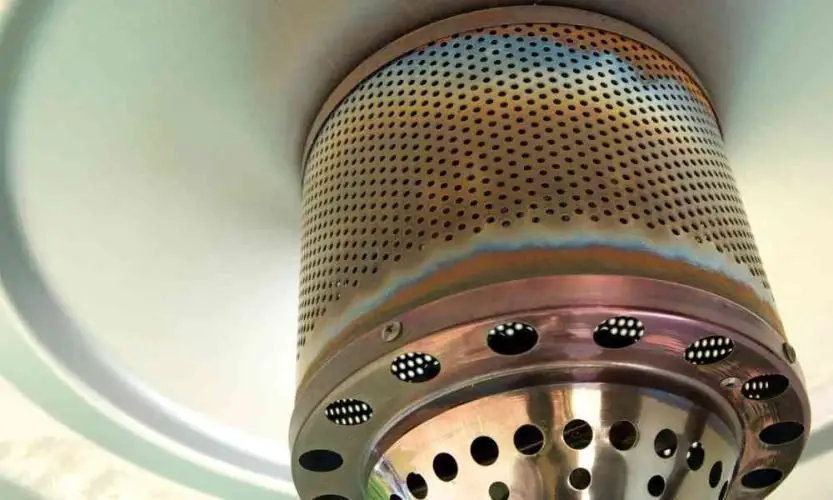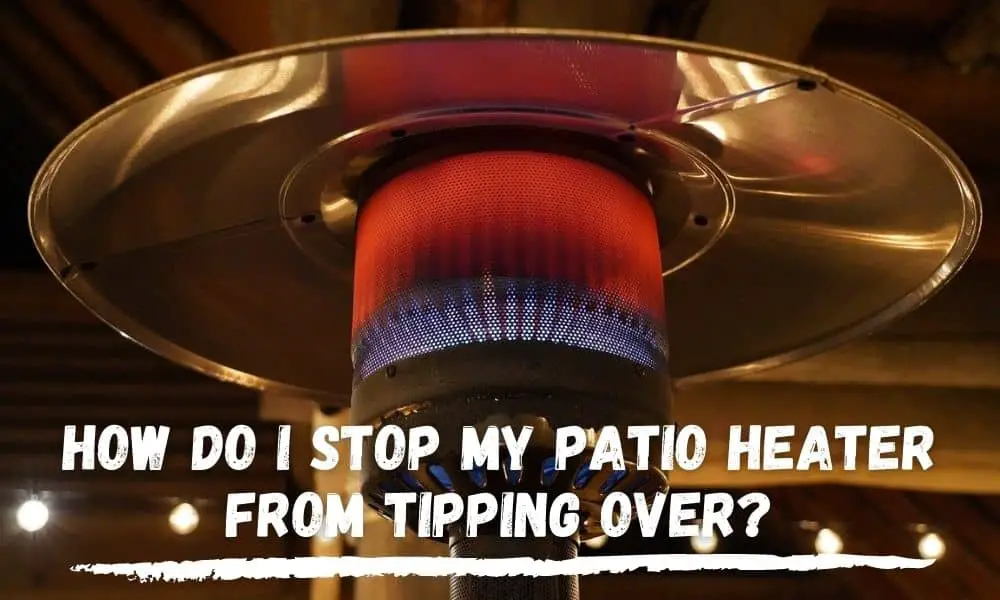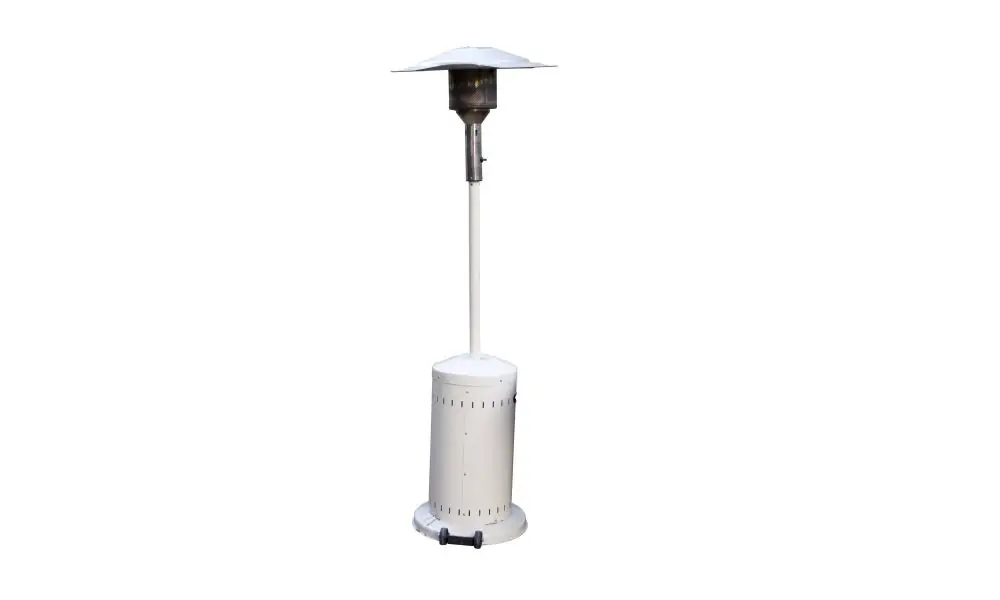Patio heaters are useful devices that can turn up the temperature both outside and indoors. These products enable you to stay on your patio or deck for longer times during the year.

Cold winter or fall evenings will be much more comfortable with these heaters because they can generate as much as 60,000 BTUs of heat. They are sturdy and most of them are built for safety.
There are many types of patio heaters that make use of different types of energy sources; the most widely available are electric and propane.
Quick Navigation
What Is an Electric Patio Heater?
Electric heaters are powerful lamps that are powered by electricity to generate heat. These lamps for heating are placed in stainless steel casings that are mounted on a wall or put on the floor. Some patio heaters that generate as little as 5,000 BTUs are powered by electricity.
The patio heater is electrically powered consumes as much as 230 to 240 volts. They can release heat within a 12’ radius. There are electric heaters that require more power, depending on the heat energy that it can produce.
Electrical heaters also come with glass protection for the safety of animals and children. It does not produce flames. You do not have to worry about it having it near flammable materials. It has to be connected to an electrical outlet or extension cords if it is to be used farther from the main house.
What Is a Propane-fueled Patio Heater?
A propane-fueled patio heater works with LPG or liquefied petroleum gas. The heat is generated when a burner is connected to the tank via a hose, and when the gas is released, the flame is ignited by a lighter or an automatic switch. The heat generated is much more powerful and can release heat as much as 60,000 BTU’s or more.
Patio heaters are more commonly used outdoors because the heated coverage is wider and stronger. It does not need to be plugged into an electrical outlet and no extension cords are needed. There are many designs and approaches to how the heat is spread.
Some burners are put high on a steel frame, covered with a metal sheet with holes, and with a small steel umbrella to keep the heat from rising and escaping. There are designs with glass tubing which works as a lamp as well as a heater.
Propane patio heaters are built to be safe from fires. Most of them have automatic shut-off mechanisms that turn the heater off when it is tilted. They can also be easily turned on with electronic switches.
Electric or Propane-fueled Heater?
Both kinds of heaters are good to generate heat and fighting cold temperatures in the fall or winter. Each of them has its own strengths and conveniences, but one type stands out more than the other.
Propane-fueled heaters are more convenient to use because they generate the best intensity of heat. These heaters are more convenient to use because they are not dependent on wires and an electrical outlet.
These heaters are also developed so they will not cause fires, and safety systems are incorporated into the product to protect users from accidents.
Electric heaters are convenient but prove to be in the same price range as propane heaters. For the same amount, less heat is produced. Electric heaters are convenient to be placed on tables or mounted on walls, but generate heat only after minutes of use.
The propane heater produces heat as soon as it is turned on. Electric heaters cannot produce the same heat as propane heaters mainly because of the energy source. Electricity will only generate heat over time and not instantly.
Conclusion
The best patio heater, which has been proven to raise the temperature outdoors is the propane-fueled heater. They are more efficient in giving out large amounts of heat, which is very welcome on cool evenings and freezing winter nights.
However, even if the product is safe to use, propane still exhibits a level of hazard and you always must follow safety protocols when using propane.




